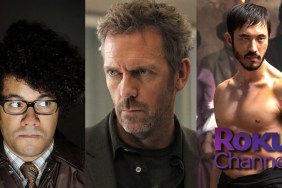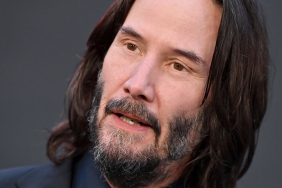
All films depend on their endings to really stick the landing and send the audience home believing they’ve spent their time wisely. Some endings can break a film, some don’t do a whole lot one way or another and then there are those that bring everything together in such a way it elevates everything you just watched. People Like Us fits into the latter of those descriptions as Alex Kurtzman (known primarily as one of the writers behind the Transformers franchise and Star Trek) steps away from genre features and makes a feature directorial debut with a film he co-wrote with his writing partner Bob Orci. One with an ending that gives reason to everything that comes before it with performances strong enough to do so.
I mention this because People Like Us can easily be interpreted as a manipulative piece of filmmaking, and one that’s easy to get frustrated with due to the decisions the characters make. However, it’s when you get to know these characters that you begin to have a greater understanding for said decisions and why they’re making them. It’s a film with an ending that can be reached only by following the path it chooses.
In People Like Us we meet Sam (Chris Pine), a fast-talking salesman whose father has just passed away. Not having spoken to his father in years, or his mother (Michelle Pfeiffer) for that matter, it’s a family reunion he’s reluctant to take part in.
Upon returning home, having missed the funeral, all that’s left is to put his father’s estate in order, but it’s here a wrench is thrown in the works. Sam is given a shaving kit left by his father filled with $150,000 cash, but it doesn’t end there. It’s not for him. There’s a note telling him of a sister he never knew he had and instructions to deliver it to her and her son and make sure they’re cared for. Sam finds himself torn between an obvious responsibility regardless of how he feels about his father and this blinding revelation, or should he just take the cash and run? After all, who would ever know? The short answer… he would.
Before deciding on what he’ll ultimately do, he seeks out his sister, Frankie (Elizabeth Banks), and her young son, Josh (Michael D’Addario), and ultimately finds his way into their lives without ever insinuating they’re in any way related. He and Frankie talk about the father they never had and the way he neglected them. A bond is formed. A bond built on a lie, or at least not the whole truth.
Here in lies the story’s biggest requirement. You’re going to have to accept the fact Sam cannot bring himself to tell Frankie they are related. It’s a story-telling convention that’s been around forever — the untold secret that would change everything — and with People Like Us it’s a tough one to swallow, but you simply must.
As an audience we’d like to believe Sam would either tell her immediately or run off with the money. We see it as black or white, one or the other. I’m not so sure.
People Like Us isn’t another rom-com where one person is caught in a precarious situation where it looks like they’re doing something bad and the other person storms off and won’t hear the truth. This, instead, is real life and we’re dealing with a pair of damaged human beings. Both feeling abandoned by their father; Frankie is a single mother and recovering alcoholic. How would either act in such a situation given their history? I can’t say for sure, but this brings me to where this film really works.
I believed in the characters. More than anything else these characters felt like real people and a lot of that had to do with the performances from Chris Pine and Elizabeth Banks. Kurtzman and Orci do a great job with their script, giving both characters humorous things to say and dramatic beats to take it home, but the heavy-lifting is on Pine and Banks.
The story requires you to believe Frankie would be open to this seemingly innocent stranger coming into her and her son’s life and that Sam is just as open to having them in his life, but still torn up inside at the fact he can’t find it in himself to tell her the truth combined with the agony knowing she even exists in the first place and he never knew. I felt that.
People Like Us still struggles in other areas, one of them being a side-story involving Sam being investigated by the Federal Trade Commission, which is entirely unnecessary and the only reason I can assume it wasn’t cut is because it comes up far too often to be excised from the film entirely. For that matter, Olivia Wilde’s character, playing Sam’s girlfriend, could have also been written out of the script quite easily so as to help keep the melodramatic moments to a bare minimum. Her involvement only seems to be there to heighten the film’s impact when it isn’t necessary.
In all, People Like Us works, and as much as it may cause some people some measure of frustration throughout I can’t help but hope that once you get to the film’s conclusion you’ll begin second-guessing that frustration and begin to understand the characters, Sam specifically, a little better. We can’t all be perfect and make the right decisions, we can only hope to learn from our mistakes and become better people for it.









